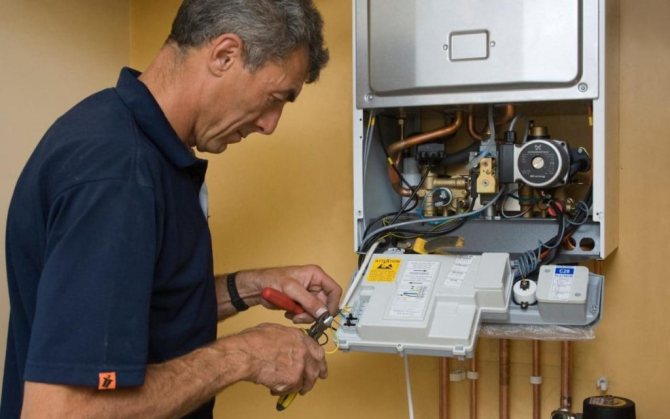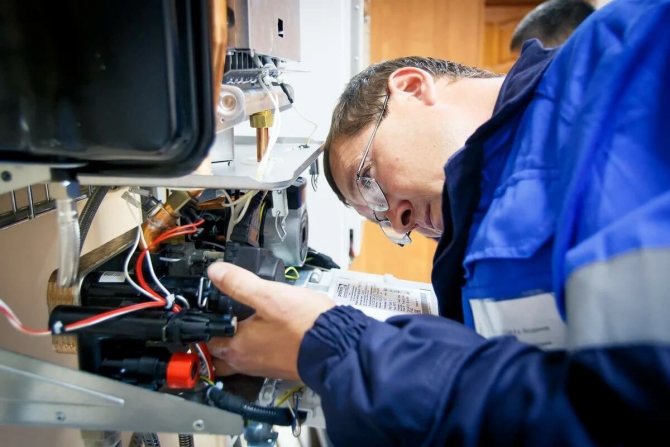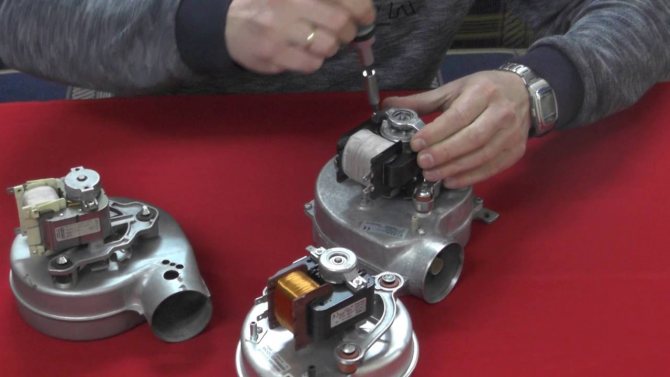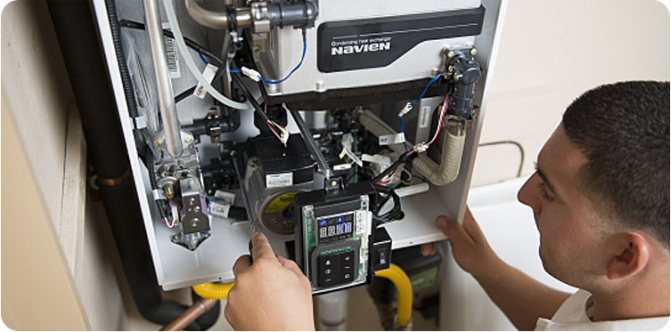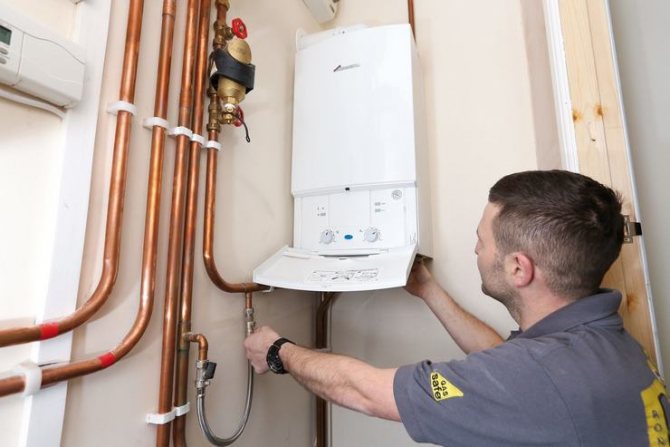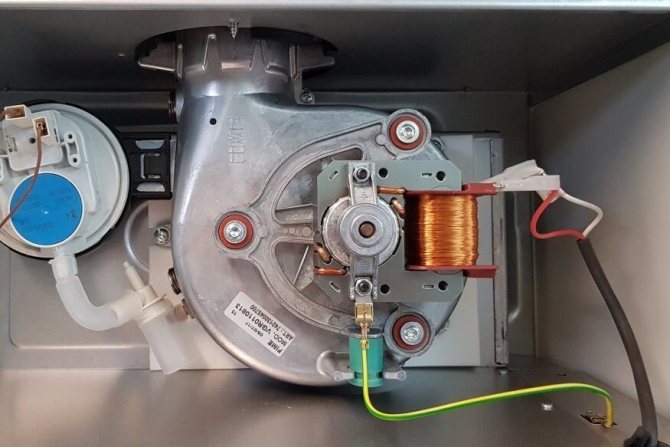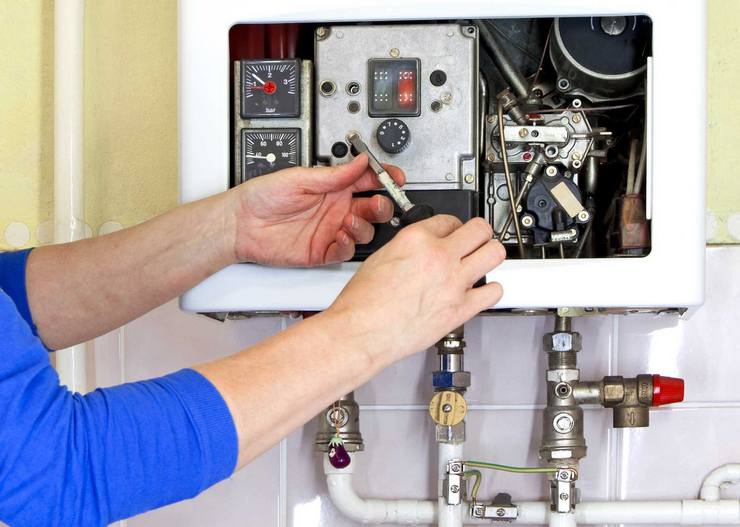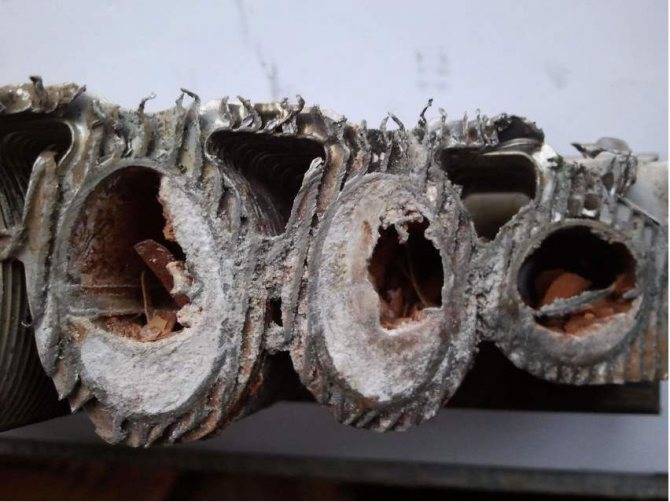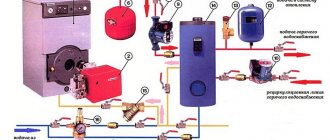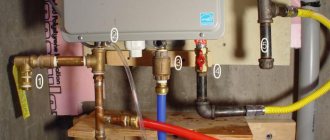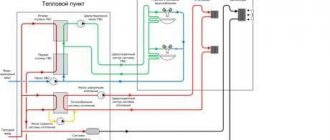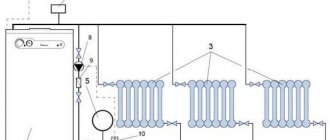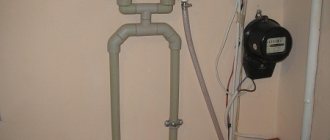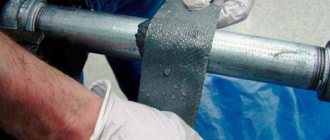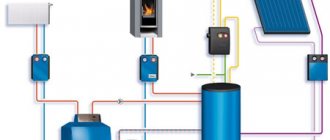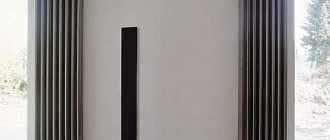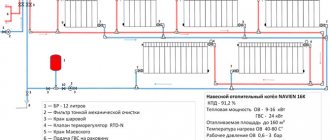Why is there noise in the boiler?
Extraneous noise in the boiler is most often not as dangerous as it might seem to an ordinary person. The threat consists only in the appearance of malfunctions when the boiler needs major repairs or replacement. Do not postpone checking the heating system indefinitely when extraneous sounds appear in the gas burner. You need to immediately contact a specialist who can determine the cause of the noise and eliminate it. It is not recommended to disassemble the boiler yourself if there is no firm confidence in how it functions and what parts it consists of.
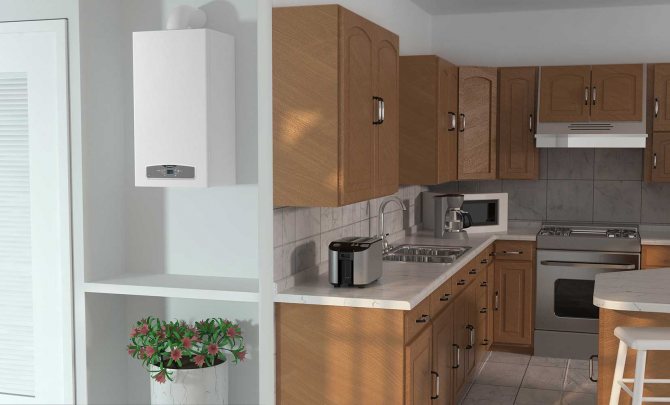
The most common causes of humming, tapping, hissing and other noise accompanying the operation of a gas boiler are:
- operation of anti-freeze media
- decrease in gas pressure
- limescale on boiler parts
- malfunction of circulation pumps
- incorrect installation of the burner
- fan failure
Why do heating pipes crack
In a private house (or apartment building), you can hear a crackling sound in the heating pipes. This noise is often attributed to the appearance of foreign solid particles in the communications. Heating pipes often crack and click for the following reasons:
- wear of some components of the system;
- damage to the valve valve;
- expansion of metal pipes.
To get rid of clicks in heating pipes in a private house, it is enough to drain the part of the water contaminated with garbage. If it was not possible to remove the knocks of heating pipes in a private house by flushing, then the radiator or pipe needs to be replaced.
A home heating circuit may contain screw valves. When there are clicks in the heating pipes, the first thing to do is to inspect the valve valves. Incorrect installation can cause the water flow to irradiate them. Over time, this will lead to partial or complete opening and crackling will appear. A possible reason why the heating pipes click is a water hammer, which is explained by the periodic instantaneous shutdown of the water flow. The defective valve must then be replaced.
Periodic quiet and knocking sounds in the heating pipes may appear due to thermal expansion. The effect arises due to temperature changes, which leads to a slight movement in space of the unsecured part of the heating system. In this case, crackling, squeaking or clicking sounds may be heard. To solve the problem of eliminating knocking in the heating pipes in the apartment, it is necessary to check the thermal insulation of the pipeline and inspect the attachment points.
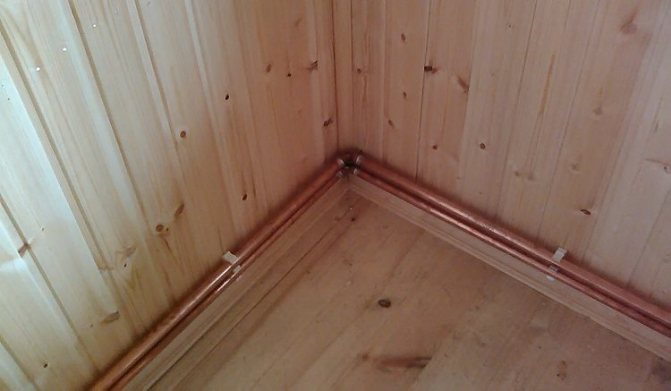

Heating pipes must be fixed to the walls at equal short distances, insufficiently reliable fixation can lead to disruption of the network
Limescale on boiler parts
Due to the fact that water is not filtered before it enters the heating elements (read about the choice of a filter for heating in a separate material), therefore, sediment often remains on the inner surfaces of the gas boiler. Parts are gradually losing their functionality. The problems start with the heat transfer elements. Further, sediment forms on the walls of radiators, pipes, this reduces the space through which water must flow. It is quite simple to get rid of scale, just open the gas boiler and clean it with special means. In this case, only the wear resistance of the equipment itself suffers. To avoid similar problems in the future, it is enough to carry out periodic preventive cleaning.
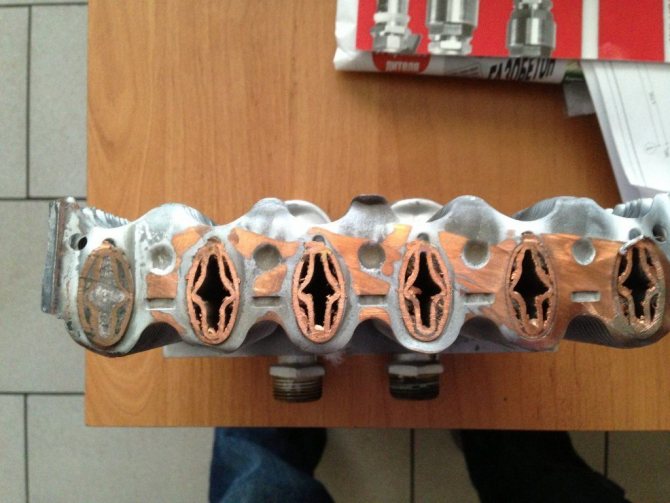

The water in the batteries is noisy and boiling
In heating communications, you can sometimes hear the gurgling or boiling of water. This kind of noise can be explained by the presence of air locks. The fact is that the murmur of water in the heating pipes makes not only the stay in the room less comfortable, but also reduces the efficiency of the system. There may be a slight decrease in the temperature of the coolant, since the air lock prevents its free movement.
Note! To eliminate the reasons why water gurgles in the heating pipes, in an apartment building on the upper floors, special taps are cut into the system (with a lower filling) to discharge excess air.
Otherwise, the heating system must be checked for counter slopes. Due to the skewed part of the wiring or the radiator, the air stagnates and, as a result, the water in it makes noise. At the same time, for troubleshooting, the entire system of a private house must be shut down.
Incorrect burner installation
Quite often, a noise resembling tapping or whistling can be caused by the fact that the gas burner in the boiler was initially incorrectly configured and installed. To check, you will need to compare the level of gas pressure leaving the burner and the recommended indicators in the technical passport of the equipment. Entrust this task to the specialist who installed the gas boiler.
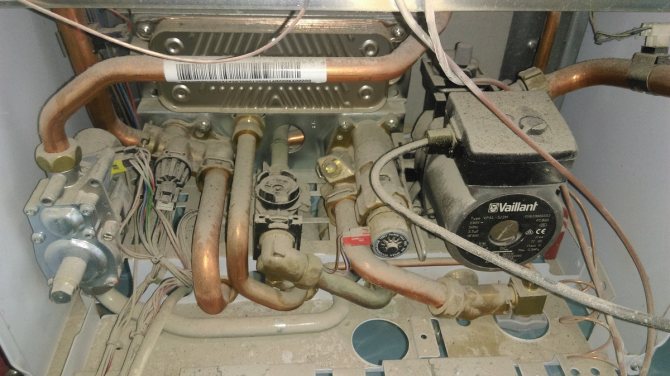

Other sources of noise in heating pipes
In addition to mistakes made when installing heating devices, or improper installation of the entire system, heating pipes can make noise for the following reasons:
- large pressure drops;
- non-compliance of the coolant with technical conditions;
- the noise of the pump located in the boiler room.
At a pressure of about 150 kPa, a special washer is mounted in front of the nozzle of the elevator, which is located in the basement. It reduces the differential and equalizes the pressures. To prevent the appearance of knocking in the heating pipes of a private house, it is much better to install a differential regulator, but this solution is more expensive.
If the noise comes from the basement, then the pump in the boiler room may be the cause. This is due to resonance in the elevator.
Note! Hum and crackling noise can be eliminated by installing a valve between the elevator and the pipe.
To avoid finding out why the heating pipe knocks in a private house, it is necessary to exclude the use of screw valves and small-diameter valves at the design stage. It is better to use ball valves that shut off the water by turning them 90 degrees. They have no constrictions under the valve, debris does not accumulate there, and their operation does not depend on placement relative to the coolant flow and installation. This will help to avoid some knocking of heating pipes in a private house.
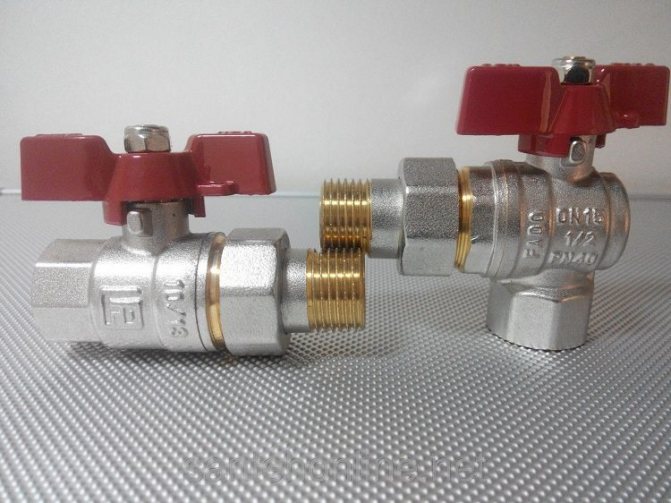

Using modern shut-off valves in the heating system, you can significantly reduce the risk of noise in pipes
Extraneous sounds in the heating boiler
Sometimes boiler lighting is also accompanied by some sounds. When cold equipment heats up and begins to crack, then the characteristic clicks should not cause panic - the metal makes such sounds when it warms up.
Gurgling and gurgling are also possible - this is also a normal phenomenon: the coolant began to heat up and set the system in motion. However, the same sounds can occur when there is not enough coolant in the pipes. In this situation, it is enough to add water to heat evenly.
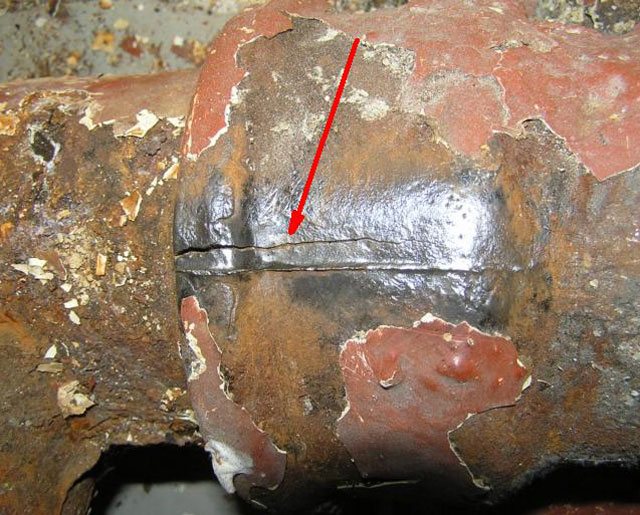

Cotton
You can hear such sounds if the gas pipes are clogged. This happens when the boiler is fired up: the accumulated gas, not having time to go outside, creates a pop. This is dangerous as a violently escaping flame can cause burns or fire.
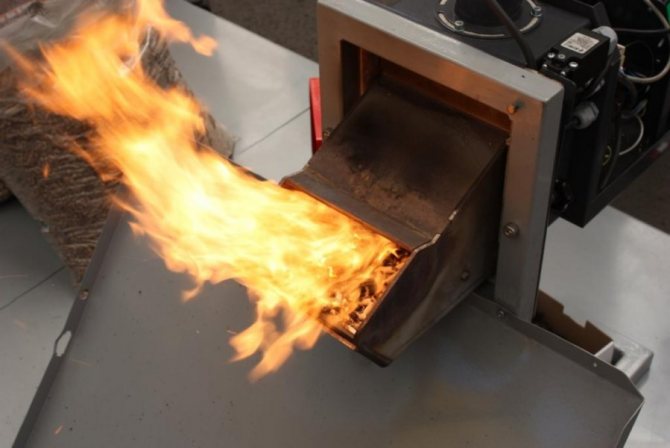

If the boiler is gas, then the reasons for this noise are clogged nozzles or a malfunction of the three-way valve. In this situation, it is necessary to clean the equipment from soot.
Knock
The occurrence of knocking in the boiler indicates its incorrect installation or unregulated operation of the pumping equipment. If the pump works unevenly, moving the coolant in jerks, a resonance occurs between the boiler and the pump, accompanied by a characteristic knock. In this case, it is necessary to regulate the operation of the pump.
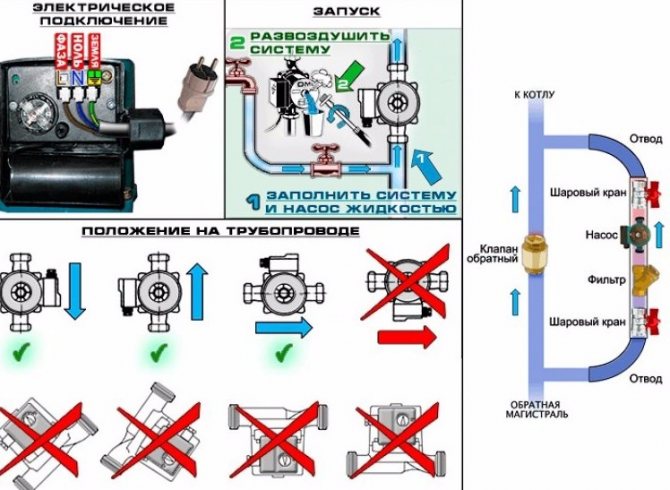

Sounds in different boiler models
Noise can arise for a trivial reason, which lies in the boiler model itself. This is typical for gas boilers equipped with ventilation burners. To avoid such a nuisance, it is necessary to choose boilers with atmospheric burners and an electronic control system.
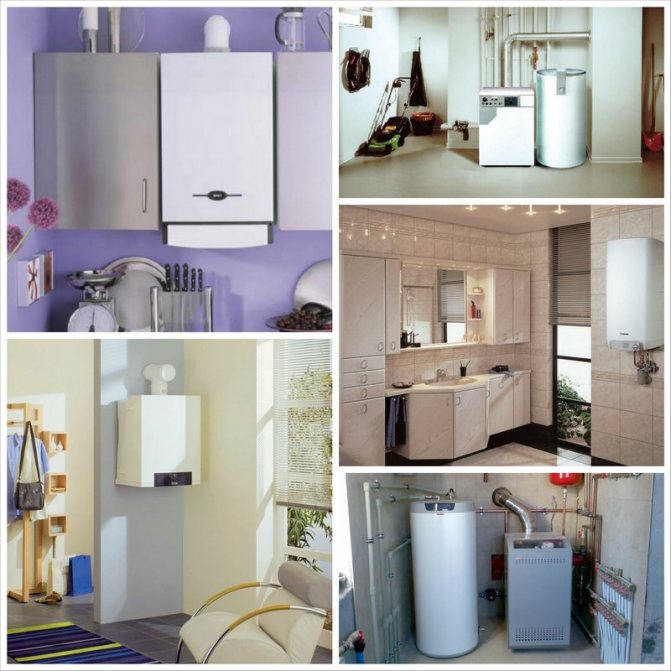

When choosing a model of a solid fuel or electric boiler for heating a house, it is always necessary to get acquainted with the technical characteristics of the equipment. Often the reason for the noise can be incorrectly selected equipment, as well as the presence of a fan in the boiler.
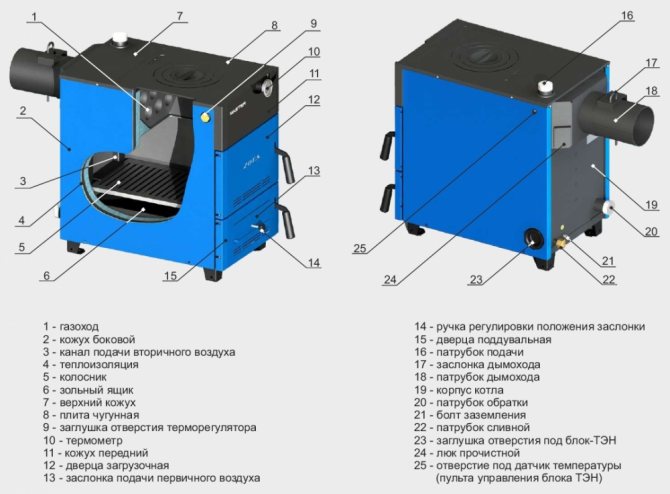

Double-circuit boilers also sin with noisy work: although not clearly, the overflow of water and the filling of the system are always accompanied by sounds.
ZOTA boilers are very sensitive to the quality of the coolant, therefore, the cause of unpleasant effects can be:
- clogged mud sump;
- oxygenated water;
- scale on working elements;
- broken bearings on the fan.
Therefore, it is worth stopping the choice on single-circuit models, and purchase a boiler for heating hot water.
Prices for boilers ZOTA
boilers ZOTA
Prophylaxis
Timely prophylaxis of all components of the boiler equipment can minimize the likelihood of noise.
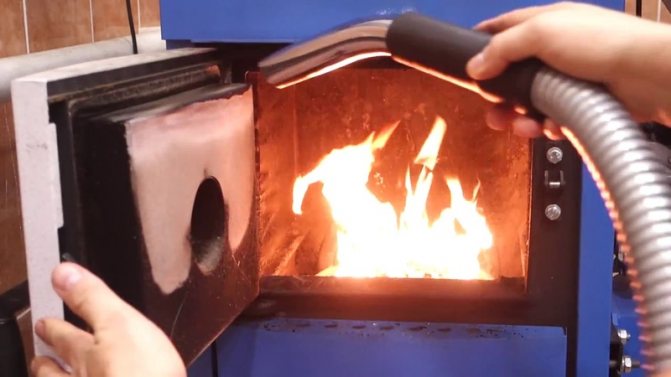

So, flushing the system once a year is a prerequisite for trouble-free operation. Moreover, this is becoming a mandatory requirement of many resource supplying organizations in preparation for the heating season.
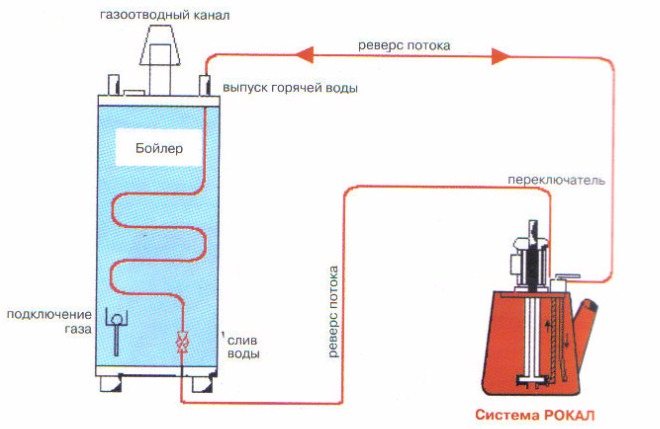

You can flush the system yourself or use the services of specialists.
Depending on the coolant, the type of cleaning is selected:
- Flushing with water under pressure generated by the compressor. Sometimes this is enough.
- In case of deposits of iron oxides on pipes, appropriate chemicals are used. They eliminate the problem and additionally create a protective barrier against further exposure to an aggressive environment.
- You can use the services of a specialized organization that has the equipment and means to carry out the work.
Each operating manual for heating equipment provides a recommendation for preventive inspection and cleaning of the working parts of the boiler from corrosion and all kinds of contamination with partial disassembly - at least once a year. If you do not carry out maintenance, the manufacturer will void the warranty.

